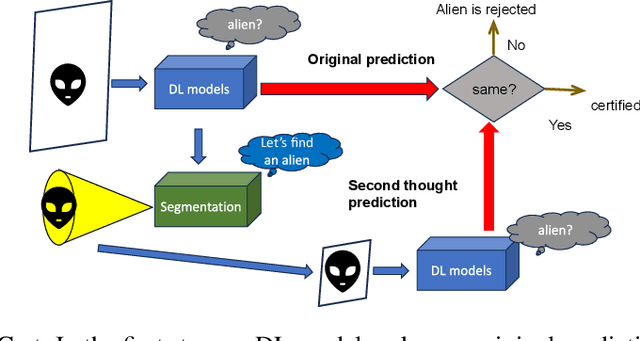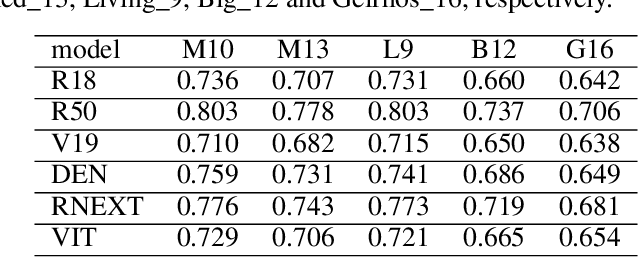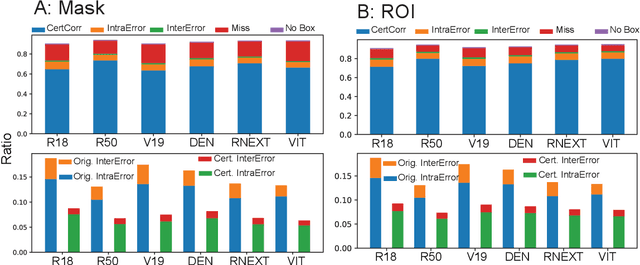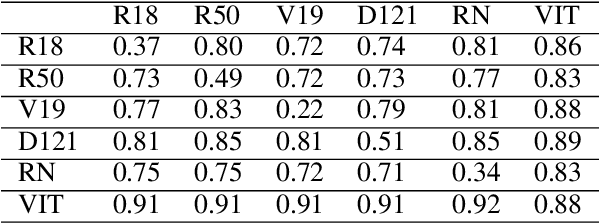Having Second Thoughts? Let's hear it
Paper and Code
Nov 26, 2023



Deep learning models loosely mimic bottom-up signal pathways from low-order sensory areas to high-order cognitive areas. After training, DL models can outperform humans on some domain-specific tasks, but their decision-making process has been known to be easily disrupted. Since the human brain consists of multiple functional areas highly connected to one another and relies on intricate interplays between bottom-up and top-down (from high-order to low-order areas) processing, we hypothesize that incorporating top-down signal processing may make DL models more robust. To address this hypothesis, we propose a certification process mimicking selective attention and test if it could make DL models more robust. Our empirical evaluations suggest that this newly proposed certification can improve DL models' accuracy and help us build safety measures to alleviate their vulnerabilities with both artificial and natural adversarial examples.
 Add to Chrome
Add to Chrome Add to Firefox
Add to Firefox Add to Edge
Add to Edge